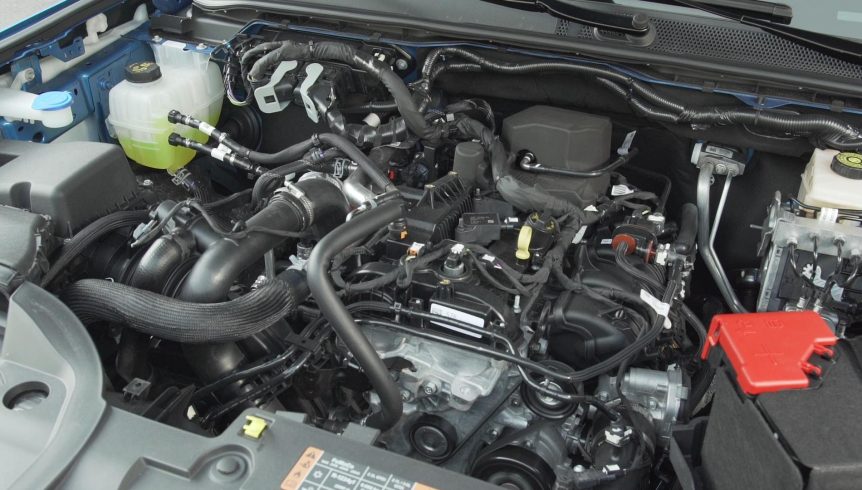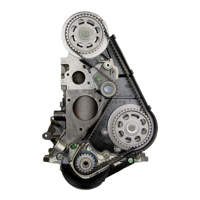Everything You Need to Know About the 2.2 Ford Ranger Engine and Its Performance
Everything You Need to Know About the 2.2 Ford Ranger Engine and Its Performance
Blog Article
How to Pick the Right Cars And Truck Engine for Maximum Performance and Performance
Picking the ideal car engine to achieve an optimum balance of performance and efficiency necessitates a nuanced understanding of different engine types and their certain characteristics (2.2 ford ranger engine). Aspects such as engine displacement, the number of cyndrical tubes, and gas kind play an essential duty in determining both power output and gas economic situation.
Recognizing Engine Kind
When selecting an automobile, among one of the most crucial elements to think about is the engine kind, which works as the heart of the automobile. The engine type substantially affects the automobile's general performance, durability, and viability for your driving needs. There are largely three engine kinds to consider: internal burning engines (ICE), hybrid engines, and electrical engines.
Interior combustion engines stay one of the most common, operating fuel or diesel. They are understood for their power and velocity, making them suitable for performance-oriented lorries. They might fall brief in fuel effectiveness and ecological influence.
Crossbreed engines integrate an interior combustion engine with an electrical motor, offering a balance in between efficiency and gas economic climate. They are significantly prominent for drivers looking for lowered exhausts while still delivering sufficient power.
Electric engines, powered completely by batteries, are gaining traction as a result of their ecological advantages and lower running costs. They offer immediate torque and a peaceful driving experience, making them optimal for metropolitan travelling.

Efficiency vs. Performance
Selecting the ideal engine type involves considering the trade-offs between performance and efficiency. Efficiency typically describes exactly how well an engine can deliver power and acceleration, which is frequently connected with larger displacement engines or those with turbocharging capacities. These engines normally provide exhilarating driving experiences and quick response times, making them preferred among enthusiasts.
On the other hand, efficiency focuses on gas economic climate and lower discharges. Smaller engines, especially those furnished with sophisticated technologies such as straight fuel shot and variable valve timing, often tend to provide far better miles per gallon and reduced carbon footprints. While these engines might compromise some power contrasted to their larger counterparts, they frequently stand out in daily driving circumstances where high efficiency is not constantly needed.
Eventually, the choice between efficiency and efficiency hinges on individual concerns. A chauffeur who values perky driving might prioritize a high-performance engine, while a person looking for economical travelling may favor an effective choice. Recognizing these compromises is critical for making an informed decision that aligns with your driving requirements and way of life, ensuring that the selected engine kind matches your assumptions for both performance and performance.
Trick Specifications to Take Into Consideration
Recognizing vital specifications is essential for making an educated decision about the appropriate car engine. When selecting an engine, a number of critical aspects necessitate consideration to make sure optimal performance and performance.
Firstly, engine variation, measured in litres or cubic centimeters, is a crucial specification. It suggests the total quantity of the engine's cylinders and normally correlates with power outcome; larger variations often produce even more power. Next off, the number of cyndrical tubes plays a substantial function in efficiency features. Engines with even more cyndrical tubes can supply smoother operation and higher power, while smaller configurations can improve fuel effectiveness.
In addition, the engine's setup, whether inline, V-type, or rotating, influences the total style and performance attributes of the automobile - 2.2 ford ranger engine. Turbocharging and supercharging modern technologies must additionally be examined; these boost an engine's power result without significantly raising its dimension, thus boosting performance
Fuel type is an additional key factor to consider, as it affects both efficiency and prices. Last but not least, the engine's compression ratio affects effectiveness and power delivery; a greater ratio generally causes far better effectiveness, however might need exceptional fuel. By meticulously evaluating these specifications, you can choose an engine that straightens with your efficiency and performance goals.
Reviewing Driving Requirements
Reviewing driving needs is a fundamental action in identifying the right automobile engine for your way of living and usage patterns. If your driving mainly consists of brief commutes in city environments, a smaller sized engine with good fuel effectiveness might be sufficient.
Think about the surface you normally navigate. Hilly or tough landscapes may demand an engine with greater torque for much better performance. Additionally, assess passenger and cargo demands; bigger family members or those who move goods might gain from vehicles with enhanced power and ability.
Diesel engines frequently provide exceptional torque and gas economy for heavier lorries, while fuel engines might offer a smoother and quieter ride. Aspect in ecological considerations, as click for more hybrid or electrical engines can supply an extra sustainable choice without sacrificing performance.
Future Trends in Engine Modern Technology
As the auto industry remains to advance, technologies in engine modern technology are leading the way for a lot more efficient and lasting driving experiences. One considerable pattern is the shift towards electrification, with hybrid and fully electric powertrains acquiring prominence. Car manufacturers are spending heavily in battery innovation to enhance energy density and decrease charging times, inevitably improving the functionality of electrical lorries (EVs)
Another arising pattern is the development of hydrogen fuel cell engines. 2.2 ford ranger engine. These systems use the potential for zero-emission driving while giving refueling times similar to conventional gasoline engines. Furthermore, improvements in burning technology, such as variable compression proportions and boosted turbocharging, are optimizing typical internal combustion engines for better performance and performance
Digital integration is likewise an essential aspect of future engine technology. The application of expert system and artificial intelligence permits real-time information evaluation, making it possible for smarter engine monitoring systems that adapt to driving conditions and improve fuel efficiency.

Verdict
In conclusion, choosing the ideal vehicle engine requires a comprehensive assessment of different elements, see post consisting of engine type, efficiency needs, and effectiveness goals. By understanding the distinctions between different engine kinds and thinking about vital requirements, people can align their options with details driving requirements. As advancements in engine technology proceed to arise, continuing to be notified regarding future patterns will certainly even more enhance decision-making, inevitably leading to a car that stabilizes performance and gas effectiveness effectively.
Choosing the ideal cars and truck engine to attain an optimum balance of performance and performance demands a nuanced understanding of numerous engine types and their certain attributes. There are mainly 3 engine kinds to consider: interior burning engines (ICE), hybrid engines, and electrical engines.
Performance usually refers to just how well an engine can supply power and velocity, which is usually associated with larger variation engines or those with turbocharging capacities. Diesel engines frequently provide premium torque and fuel economic situation for much heavier lorries, while gas engines may offer a smoother and quieter adventure.In final thought, choosing the ideal automobile engine requires an extensive assessment of numerous factors, including engine kind, YOURURL.com performance needs, and effectiveness goals.
Report this page